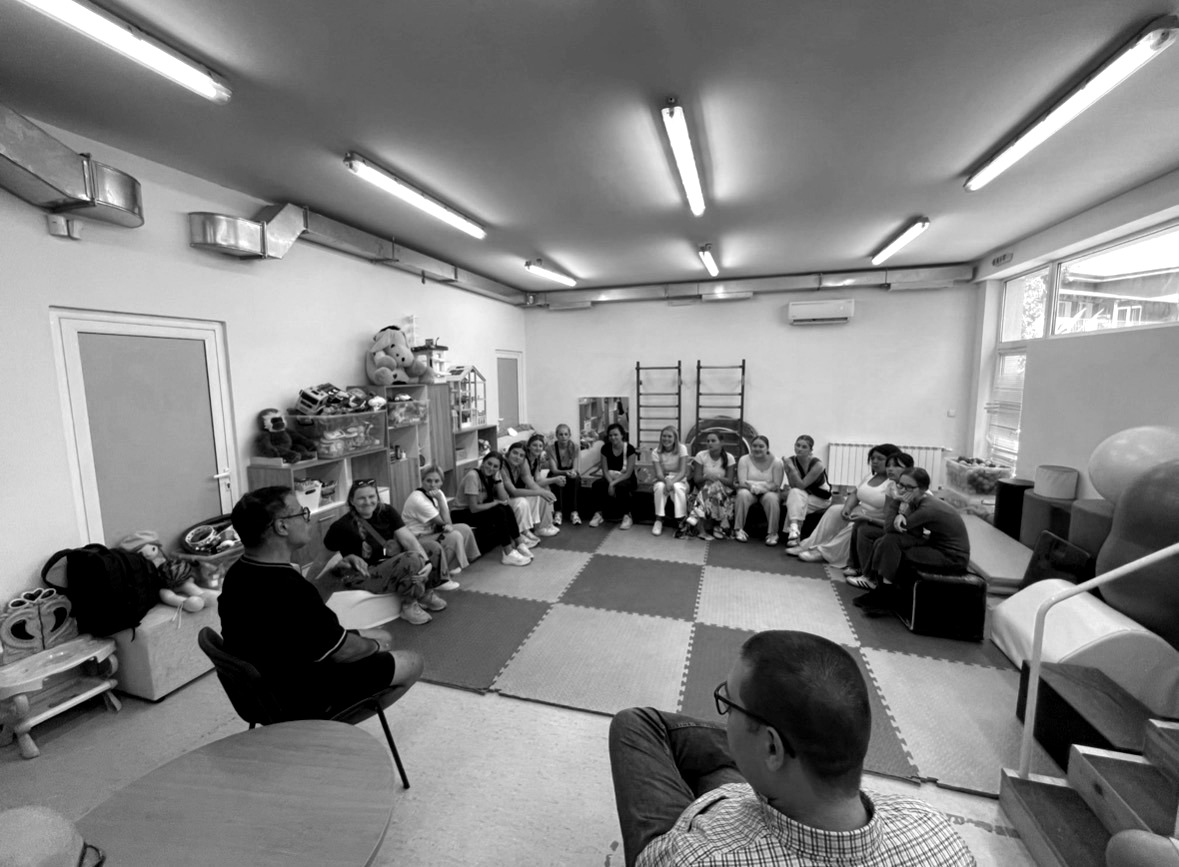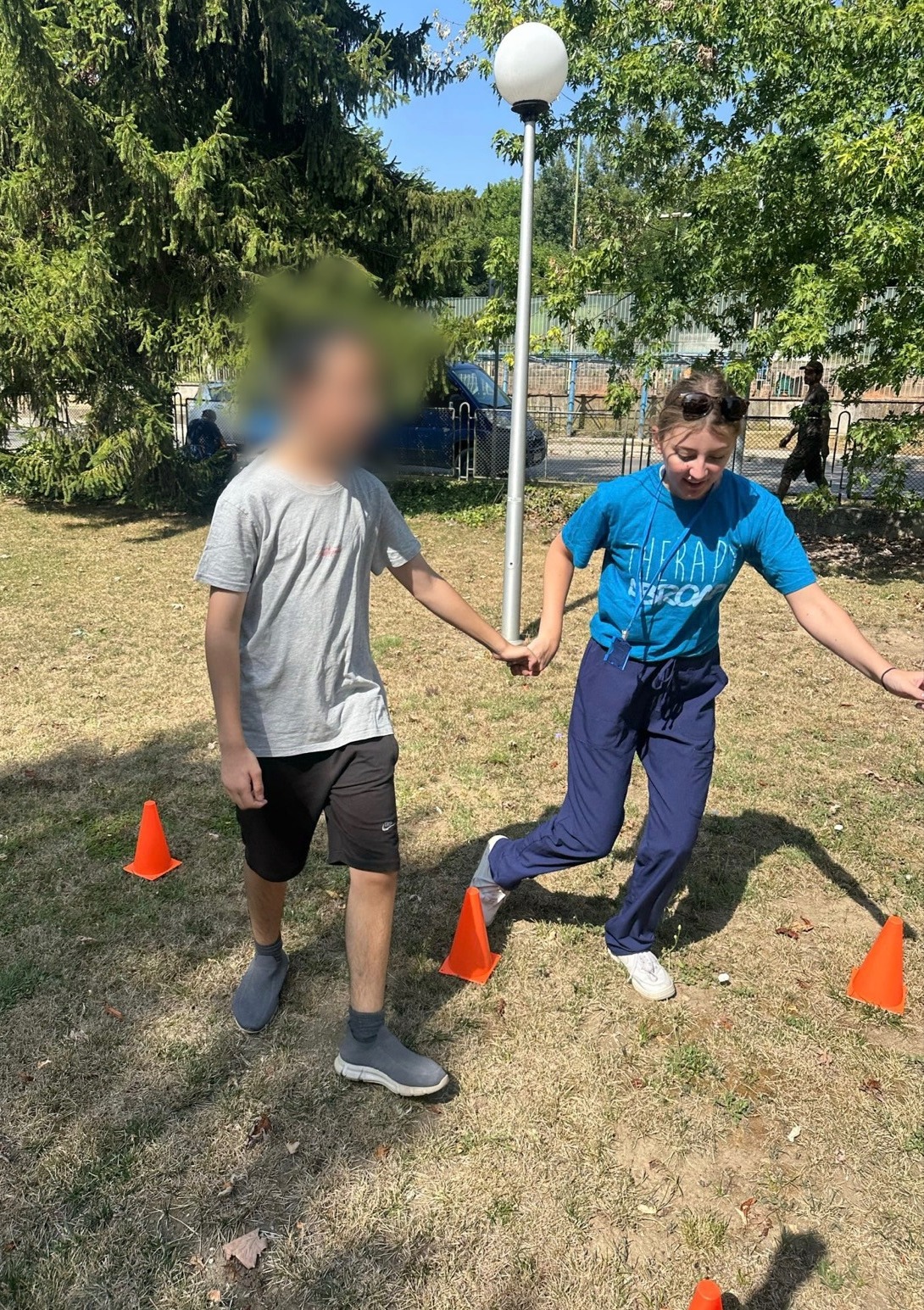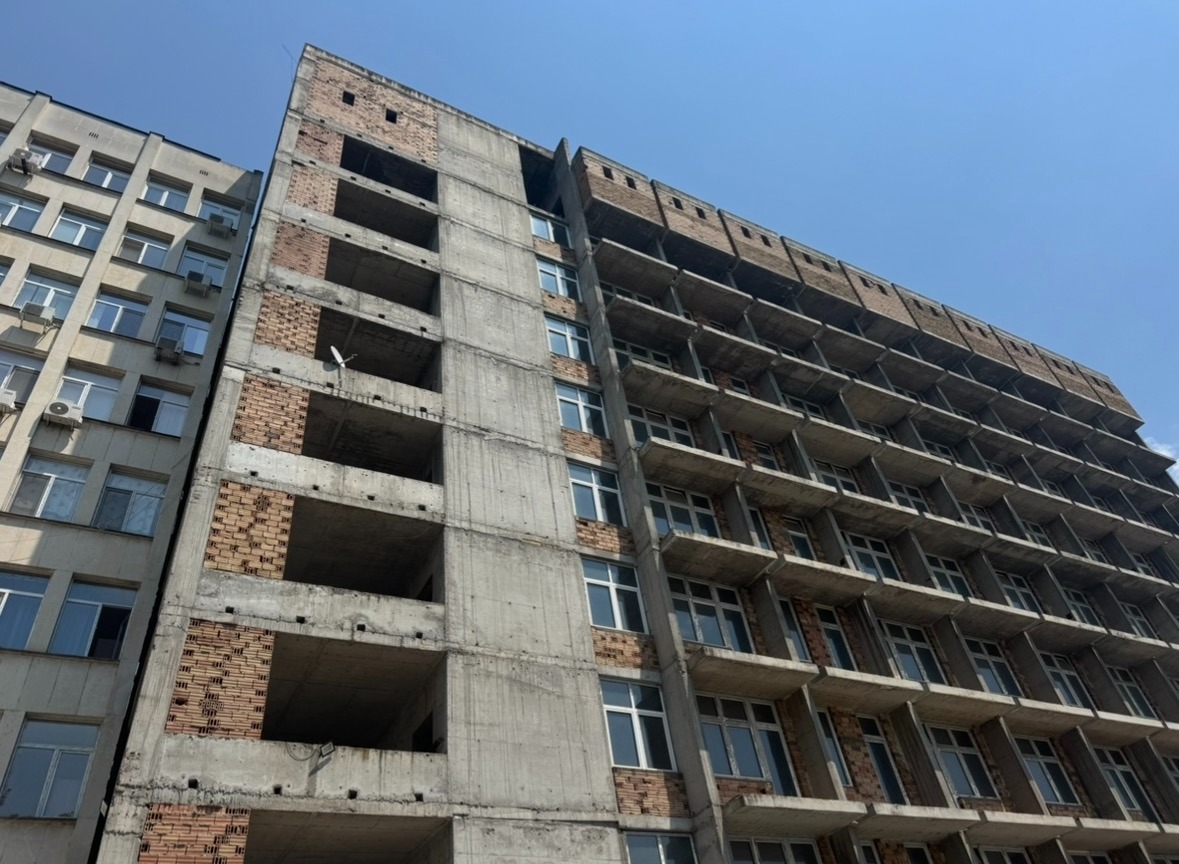
A Cross-Cultural Look: Speech Therapy in Bulgaria
This summer, I had the privilege of attending a study abroad speech therapy program in Bulgaria through Therapy Abroad. For just under a month, I immersed myself in Bulgarian culture while gaining hands-on exposure to the field. The program provided opportunities to observe how speech therapy is implemented in a variety of settings, including hospitals, geriatric centers, and pediatric disability centers. In this blog post, I am going to explore some of my key takeaways from this experience and what they have taught me about myself and my future path.
Note on Cultural Sensitivity and Bulgarian Healthcare:
It’s important to acknowledge that many of us in the West are privileged and often socialized to assume that our way of thinking, including how healthcare should be structured, is the “best” or only correct model. Not only is this a dangerous way of thinking, but it also causes us to overlook both the strengths and the shortcomings of other countries’ institutions.
In terms of the Bulgarian healthcare and social systems, the nation is very community-oriented, leading them to have universal healthcare. They also have private coverage, but they see it as a right for everyone in their nation to have access to healthcare, which likely stems from the value placed on Bulgaria being a less individualistic society. As the nation is still rebounding from the more negative impacts of communism, it still struggles with funding for this healthcare, as well as access in more rural areas. Telemedicine is on the rise, however, there is some hesitancy, as Bulgarian culture is very centered on trust and human connection, which can be difficult to develop through a screen. Overall, healthcare delivery seems to be more effective on patients when a genuine connection is made with the provider, which was important for us to note when going into the country.
When talking about cultural sensitivity, we need to remember that the on and off history of Bulgaria’s occupation has led the people to be more wary of foreigners coming in and imposing their ideas and beliefs. This is why it is so important to go in with a willingness to ask questions and to shift our Western mindsets, realizing the way we treat patients is not the only correct way, and there may be many practices done in Bulgaria that could benefit us as well. When working with these patients, I did not want to come across as an American coming in and telling them how to fix their situation, because in reality, I don’t know their situation, and as much as we are there to provide resources to them, they are also welcoming us into their culture and that needs to be respected. Our trust from the people was not an automatic given and needed to be earned.
General Takeaways:
- The fall of the Berlin Wall brought a lot of advancement to the field in Bulgaria. During communism, all of the literature available to SLPs was mandated by the Soviet Union, this means they weren’t getting any modern research coming from the west. When the Berlin Wall fell, suddenly SLPs were able to access new resources, treatments, and therapies for their patients.
- In Bulgaria, speech therapy is a relatively new field. We were lucky enough to meet with the longest licensed speech pathologist in the nation, and he couldn’t have been over 60 years old.
- Within the nation, disability continues to carry a significant social stigma. During my time abroad, most of our work took place at the Gabrovo Center for Children with Disabilities, where we spent time with many children who had been abandoned by their families. Many of these children had grown up internalizing the belief that their disability was a burden.
- Bulgaria is a beautiful nation! We spent a lot of time exploring the nation’s landscape, trying cultural dishes, and learning about the country’s history. It is a hidden gem in Eastern Europe, and I definitely want to go back and visit again, next time bringing my family and friends along.
Some Personal Takeaways:
- I am not meant to work in a geriatric setting. While all of the patients and clinicians I worked with at the geriatric centers were incredibly kind, I struggled with the mental toll that came with knowing that the vast majority of these patients are not going to improve. Many of these adults had degenerative diseases or brain trauma, and the SLPs on staff were there primarily to slow the speed of language loss. This job is incredibly important, and I have so much respect for those going into it, but I worry that I would get burnt out quickly if I decided to specialize in this age group.
- While I believe that the US healthcare system has many major flaws, I realize I have been taking for granted how deeply understaffed and underfunded healthcare is in nations with more economic instability. After one of our hospital visits, I found it necessary to take a moment for myself and reflect on the privilege I was raised in. There were many things that I assumed a country with Bulgaria’s economic state would have, such as air conditioning in hospitals or strict sanitary restrictions placed on healthcare providers. Arriving and seeing the infrastructure of some of these buildings, I had to step back and remind myself that my experiences with the healthcare system vary drastically from someone native to Bulgaria.
- As a speech pathologist, I would love to work on destigmatizing disability. While the US is a little more progressive on this front than Bulgaria, it is still a major issue that people with disabilities believe they are a burden on their caretakers and society. I would love to help clients learn to love themself as they are and to help them feel more confident.
Final Thoughts
My time abroad will, hands down, go down as one of my most valuable experiences in undergrad. I learned so much about the field and was able to make some genuinely deep and honest connections with clients and fellow clinicians. It was inspirational to see how resilient the Bulgarian people are, having undergone so many drastic political and historical shifts, and it was a nice reminder to me that, at the end of the day, the most important thing for human connection is respect for one another. Finally, I encourage you to take a step to do something like this if you are able. I’m not saying you need to go to another country and shadow your future career necessarily, but to take time to see the bigger picture of what your work means can truly add another layer of gratification to that work.
If you have any questions about my time, please go to my contact page and reach out. I would love to share more about the program and my experiences.
Below are a few images from my time abroad!



Post a comment